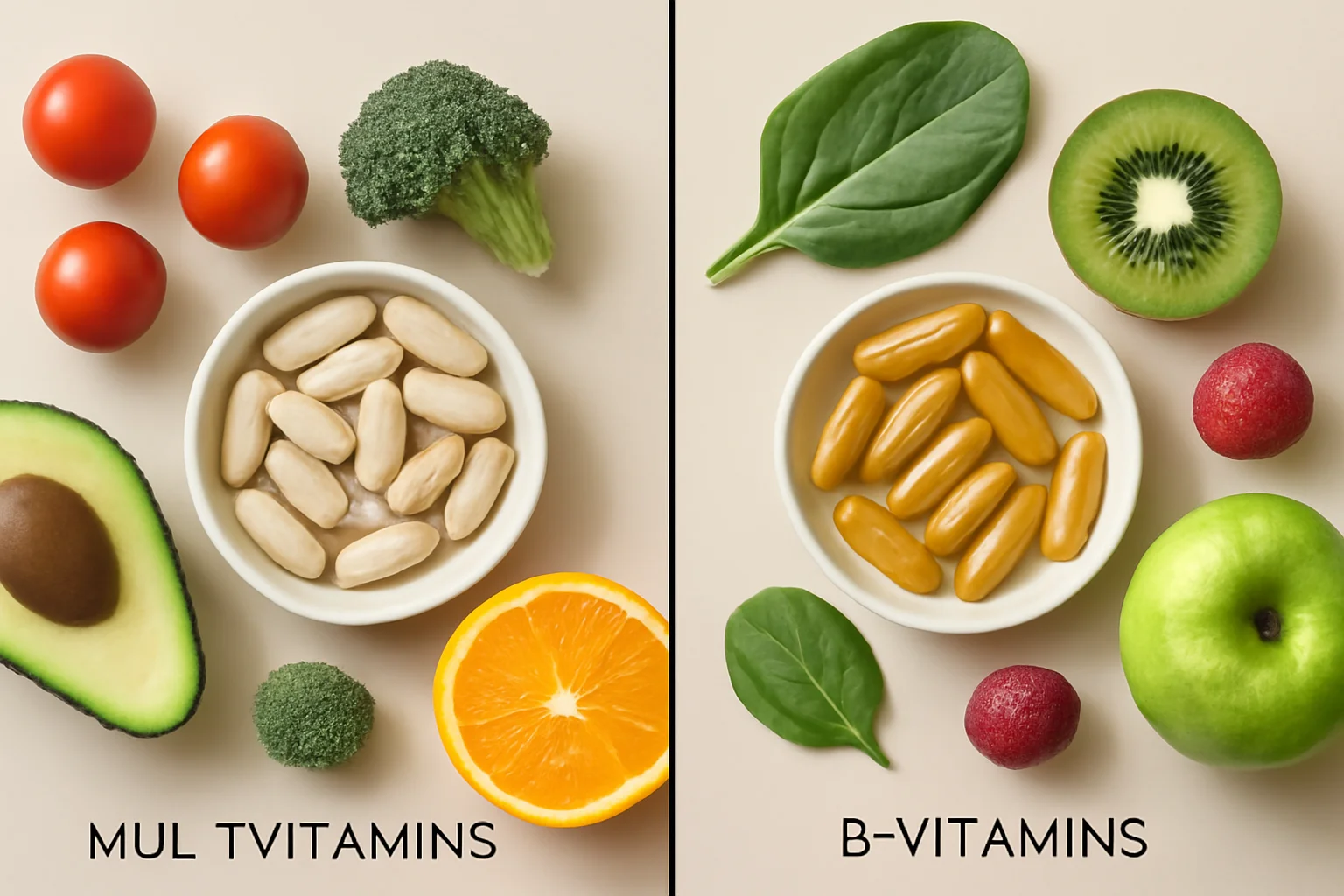
Multivitamin or B-vitamin: Which is the better choice for you?
The modern lifestyle and dietary habits are constantly changing, which is why more and more people are seeking alternative solutions for supplementing vitamins and minerals. The role of vitamins in the functioning of the body is essential, as they contribute to strengthening the immune system, regenerating cells, and maintaining overall health. B vitamins and multivitamins are two popular choices, among which many do not know which is more suitable for them.
B Vitamins: Why Are They Important?
The group of B vitamins includes eight different vitamins, each playing a distinct role in the body. These include B1 (thiamine), B2 (riboflavin), B3 (niacin), B5 (pantothenic acid), B6 (pyridoxine), B7 (biotin), B9 (folic acid), and B12 (cobalamin). B vitamins are water-soluble, which means the body cannot store them, making it important to replenish them regularly.
The primary role of B vitamins lies in providing energy to cells. Vitamins B1, B2, B3, and B5 are directly involved in the metabolism of nutrients, helping to break down carbohydrates, fats, and proteins. Additionally, vitamins B6 and B12 play key roles in the formation of red blood cells and the synthesis of neurotransmitters, which is particularly important for mental health.
A deficiency in B vitamins can cause various problems, including fatigue, mood swings, skin issues, and digestive disorders. A balanced diet rich in vegetables, fruits, whole grains, meat, and dairy products can help ensure adequate B vitamin intake. However, many, especially vegetarians and vegans, struggle to obtain enough vitamin B12, making B vitamin supplements potentially useful for them.
Before taking B vitamins, it is always advisable to consult a healthcare professional to determine which vitamins are lacking in our bodies and what dosage we may need.
Multivitamins: For Completeness
Multivitamins are dietary supplements that contain a combination of one or more vitamins and minerals. Their purpose is to supplement any potentially missing nutrients from daily nutrition, thereby contributing to the health of the body. Multivitamins offer a wide range of nutrients that can help meet vitamin and mineral needs.
The advantage of multivitamins is that they simplify vitamin supplementation, as multiple nutrients can be taken in a single tablet or capsule form. This can be particularly useful for those who lead a hectic lifestyle or whose diet is not always balanced. Multivitamins often contain B vitamins as well, along with other important nutrients such as vitamin C, vitamin D, vitamin E, zinc, and magnesium.
However, it is worth noting that multivitamins do not replace a varied and balanced diet. While multivitamins may be beneficial for many people, the best source of nutrients will always be food. Consuming vitamins and minerals in their natural form is the best way to ensure optimal functioning of the body.
It is important to pay attention to quality and active ingredients when selecting multivitamins. Different products may have varying compositions, so it is advisable to choose a product that meets our own nutritional needs and lifestyle.
B Vitamins and Multivitamins: When to Choose Which?
Choosing between B vitamins and multivitamins is not always straightforward, and many people wonder when it is best to choose one over the other. The decision primarily depends on individual needs and lifestyle.
If someone specifically experiences a deficiency in B vitamins, or if their diet does not provide enough sources of B vitamins, it may be worth considering a B vitamin complex. These supplements focus specifically on replenishing B vitamins and can help prevent or treat deficiencies.
On the other hand, if someone wants to generally support their health and ensure that they meet their daily vitamin and mineral needs, then multivitamins may be the right choice. Taking multivitamins can be particularly beneficial during stressful periods, increased physical activity, or when the diet is not sufficiently varied.
It is important to always consult a doctor or dietitian before taking vitamins and minerals to find the most suitable solution for our individual needs.
Attention: This article does not constitute medical advice. Always consult a doctor for health issues.

